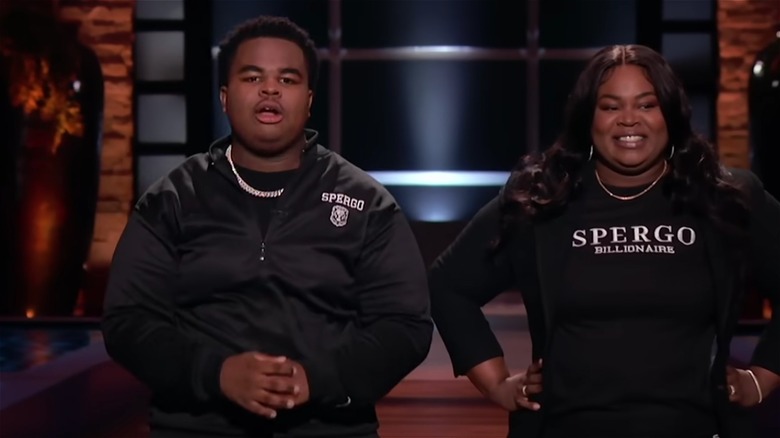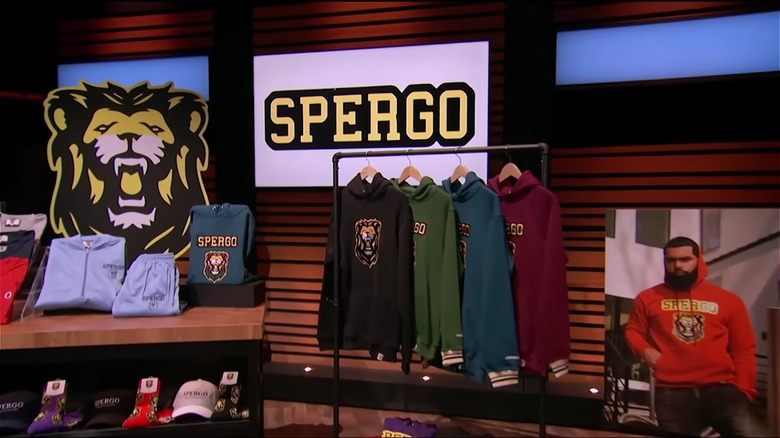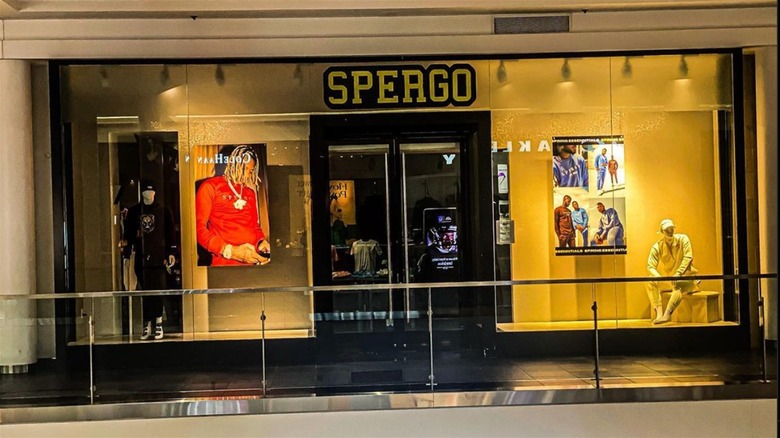What Happened To SPERGO After Shark Tank?
Teen entrepreneur Trey Brown became an inspiration for thousands when he stepped onto Season 13, Episode 5 of "Shark Tank" in 2021. Alongside his mother, Sherell Peterson, they delivered an enthusiastic pitch for SPERGO, which stands for "sports," "hero," and "go for the go-getters." Founded in 2018, Brown started selling his apparel at 12 years old in order to provide himself and his friends an alternative to street life. With $178 of his own birthday money, Brown printed his first SPERGO shirts and sold them to his community in Philadelphia.
In its first year, SPERGO cleared $40,000 in sales. As a lifestyle apparel brand, the line had been extended to include socks, hats, hoodies, and sweatpants. Their embroidered sweat suits rang up at $170, certifying SPERGO as a premium clothing line. The Sharks were instantly impressed by the young businessman and his clothing's quality.
In addition to high sales, Brown explained that SPERGO was a movement for the youth, and had taken off on social media. With such success, viewers may wonder why this premium clothing brand entered the 'Tank. Well, it turns out Brown's business mindset worked out in his favor, as he ended up reeling in two Sharks who were hooked on SPERGO.
What happened to SPERGO on Shark Tank?
Trey Brown and Sherell Peterson captured the Sharks' hearts the minute they stepped onto "Shark Tank." At just 15 years old, the teen's drive to make a difference in his community was very promising. His colorful designs not only fit the Gen Z streetwear fashion aesthetic but also captured the attention of celebrities like Sean "Diddy" Combs. Brown requested $300,000 from the Sharks in exchange for 10% equity in his business.
The Sharks immediately jumped at the opportunity to join SPERGO in their goals to expand operations by hiring fashion designers and increasing digital sales. While impressed, Lori Greiner, Kevin O'Leary, and Robert Herjavec didn't see themselves as the best partners for the streetwear brand. Herjavec noted that he didn't have experience investing in brick-and-mortar clothing lines. They were out, which left Mark Cuban and Daymond John.
John, who founded "FUBU" fashions as a young man, obviously resonated with Brown's story. However, he didn't understand how SPERGO could need more resources — in other words, the brand was already set. Despite these doubts, John matched Cuban's offer of $300,000 in exchange for 25%. Brown gave John a counteroffer of $300,000 for 20%, to which the angel investor heartily agreed. SPERGO walked out of "Shark Tank" with a well-earned deal, making it a "Shark Tank" success story.
SPERGO after Shark Tank
Following their appearance on "Shark Tank," SPERGO experienced a sales boom that often followed exposure on the reality series. They processed more than 1,000 orders within the week after their episode aired. As expressed on "Shark Tank," Trey Brown and Sherell Peterson had big plans for their investment from Daymond John. In fall 2021, they opened their third SPERGO store in Pentagon City Mall, after hosting a successful pop-up, although that location no longer seems to be open. In their pitch, Peterson told the Sharks that the majority of their sales occurred at SPERGO's in-person stores rather than online.
SPERGO's e-commerce shop offers sweatsuits, trucker hats, and socks in varying colorways. It appears that two of SPERGO's three locations are still up and running. There's one in King of Prussia, Pennsylvania, and the brand's flagship store in Philadelphia. SPERGO also still has pop-ups at various locations. The brand has also remained a favorite amongst rappers and athletes, as showcased to SPERGO's 114,000+ followers on Instagram.
As for Brown, the young entrepreneur shows no signs of stopping. In 2022, he received a spot on AfroTech's "Future 50" list and spoke about his dream to become a millionaire by 21 years old. Brown revealed that in addition to streetwear, he wants to be a music artist. "I stopped doing music once SPERGO came out, but now I'm using my audience and the different relationships that I have to build on my music," he told AfroTech. He also wants to encourage other young people to follow their dreams, saying, "I hope my journey will inspire other young people just to show that there's no age limit to when you can start."


